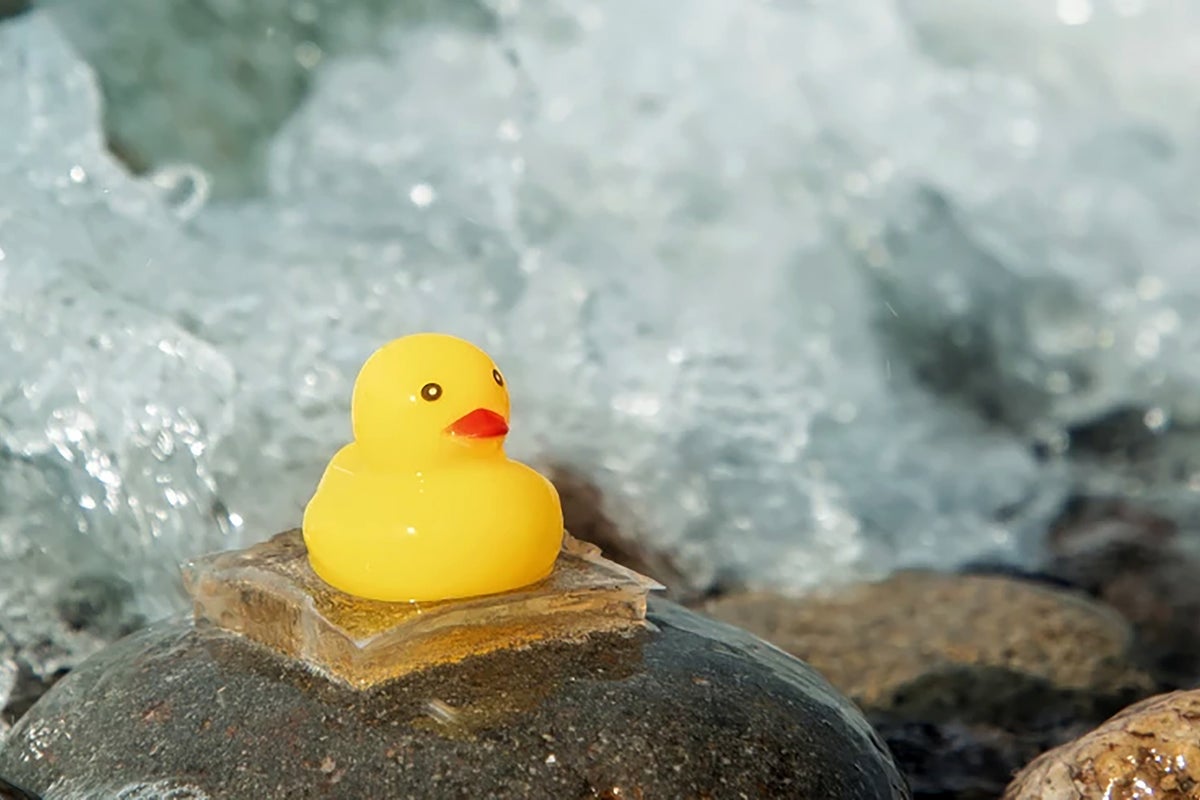
"On the shores of a beach in northern Japan, waves pummel a rubber duck stubbornly stuck to a rock. Thanks to a new supersticky hydrogel lining its base, the toy won't budge. Hydrogels are soft, jellylike materials used in many fields."
"Researchers plastered a new superadhesive hydrogel on the base of a rubber duck and propped it on a rock by the ocean. The duck may stick there for years, the researchers say."
"Inspired by these adhesive abilities, researchers combed through catalogs of these animals' protein structures to mimic their stickiest features. Then, the scientists incorporated these protein structures into the hydrogels and tested them."
"After running several experiments, the team fed the results to a machine-learning system so that it could design a hydrogel with even stronger glue."
A new supersticky hydrogel has been developed that adheres effectively to wet and salty surfaces, inspired by the adhesive capabilities of barnacles and mussels. Researchers integrated proteins from these creatures into the hydrogels and ran experiments to enhance performance. A machine-learning system was then employed to design stronger adhesive versions of the hydrogel. These advancements present potential applications not only in everyday objects, such as toys, but also in fields like medicine and underwater repair operations.
Read at www.scientificamerican.com
Unable to calculate read time
Collection
[
|
...
]